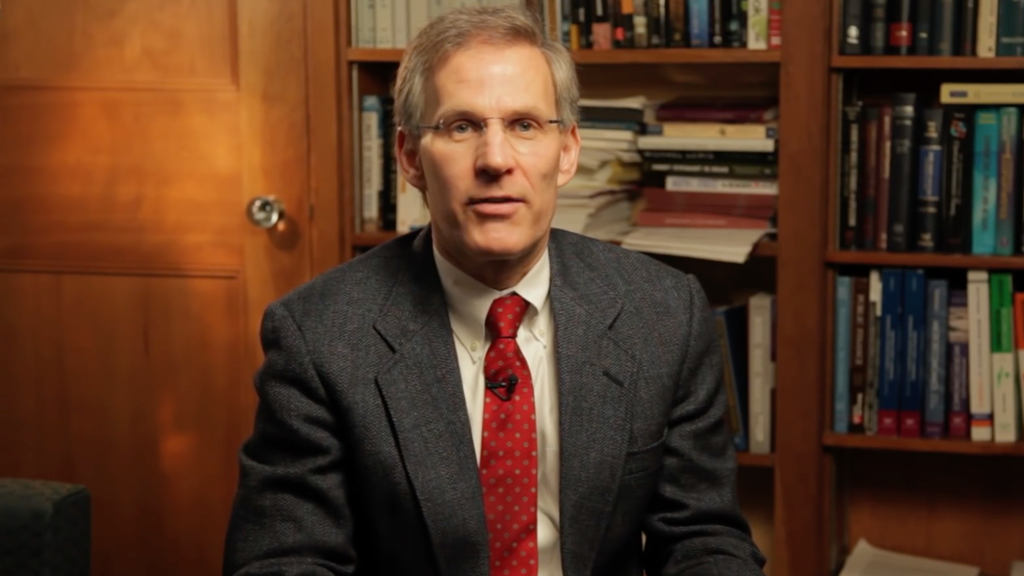Tag: competition


Five myths about antitrust
August 24, 2023 | Post
Antitrust law will likely affect you personally, either targeting a company you patronize or even your employer. With big changes on the horizon for competition enforcement, here are five popular misconceptions surrounding antitrust…

Harmful natural monopoly: the myth that keeps on giving
August 17, 2023 | Post
Understanding that it is governments – not free markets – that create harmful monopolies is monumentally essential in order to harbor a comprehension of basic economic principles.

Fixing education will take more than school choice
May 22, 2023 | Post
The topic of school choice policies continues to be a subject of ongoing debate, with varying perspectives on how best to approach the issue. Aside from the opposition of groups invested in the status quo, pro-school choice reformers disagree about how to design choice policies and the role of the federal government. Any policy that […]

5 ways market competition can reduce global poverty
October 17, 2022 | Post
Economic competition in functioning market economies it the best surefire way to reduce global poverty. That, and letting people leave poor countries for rich ones.

Would the American Innovation and Choice Online Act enhance economic freedom?
August 18, 2022 | Post
There are good reasons to believe that the AICOA would not enhance economic freedom nor improve overall welfare. This is a problem, not because big tech needs more defenders, but because it would stifle competition and economic freedom.

Reddit AMA with Professor Jeffrey Miron of Harvard University
August 4, 2017 | Post
Dr. Miron has written over 100 op-eds and several books, including Drug War Crimes: The Consequences of Prohibition (2004) and Libertarianism: from A to Z (2010).

Lawnmowing licenses: Crony capitalism in action
June 6, 2017 | Post
This isn’t an accident. This is the purpose of these regulations — to protect established businesses from competition.

How regulations block economic progress
March 27, 2017 | Post
To discover the Next Big Thing, you need to think outside the box.

Healthcare will never be affordable without action on prices
March 25, 2017 | Post
Republican reformers have repeatedly promised affordable healthcare for all Americans — doubly affordable, in fact. They promise sufficient subsidies to put premiums and out-of-pocket costs within reach of low- and middle-income consumers. At the same time, they promise that the plan will be affordable to the federal budget, even given the constraints their most conservative […]

Airport economics: The tragedy of the overhead bins
March 20, 2017 | Post
Here are three economic principles you’ll see between security and takeoff.

How a telephone company used the government to monopolize an industry for decades
March 3, 2017 | Post
“Oh for the days of Ma Bell!” is not a lament we’re likely to hear. And for good reason. Before the breakup of AT&T, America’s telephone system was a government-sanctioned monopoly characterized by stagnant service offerings, high costs, and a glacial pace of consumer-facing innovation. So it was distressing when a federal appeals court engaged […]

What America needs most right now is more economic freedom.
February 24, 2017 | Post
If human flourishing is our goal, we must return to a society where economic freedom is championed.

William Graham Sumner Part 4 – Charity, Liberty, and Social Justice
February 12, 2017 | Post
Zwolinski concludes his series on William Graham Sumner with the question of how we ought to help the poorest among us.

William Graham Sumner Part 1 – Laissez-Faire and Social Darwinism
February 12, 2017 | Post
William Graham Sumner often gets unfairly labeled a social Darwinist. In this first post in a new series, Zwolinski tries to nail down just what “social Darwinism” means.

You’re in Joseph Schumpeter’s economy now.
February 8, 2017 | Post
To survive, even the most successful companies have to be willing to quickly dispense with yesterday’s winning business plan

Diversity: The best argument for school choice
January 28, 2017 | Post
Data such as standardized test scores can only tell us so much. For one thing, children are not standardized.

America changed, and the Rust Belt failed to adapt
January 27, 2017 | Post
On Friday, January 20, 2017, Donald Trump was sworn in as the 45th President of the United States. His victory in the 2016 election was a surprise to many, and his success in the so called Rust Belt made it happen. Wisconsin, Michigan and Pennsylvania all went to Trump, something that hadn’t happened for a Republican […]

5 types of school choice: Which has the least government involvement?
January 24, 2017 | Post
In some types of school choice (like open enrollment programs and charter schools) the government plays a big role. And in others (like voucher programs and education savings accounts) not so much.

Why education isn’t a public good — and why government doesn’t have to provide it
January 18, 2017 | Post
Calling education a public good is potentially dangerous.

Not your business: Let restaurant owners make their own decisions
January 18, 2017 | Post
The free-market concept is simple — private property owners should be able to preside over whatever policies they want.

How entrepreneurs can make better schools for real kids
January 17, 2017 | Post
Suppose that there are children throughout America who are utterly disengaged in their assigned public school each day, but that are absolutely riveted by the sports news on TV or YouTube each night. Suppose that at least one set of their parents realize their sports nut child is uninterested in school because it targets the instruction and examples to generic children.

A champion of “absolutely unlimited competition” in education
January 15, 2017 | Post
In 1926, J. Gresham Machen testified before a congressional committee regarding a proposed federal department of education. In the first minute of his testimony, he explained that the purpose of the bill was “to promote uniformity in education,” which, he asserted, “is the worst fate into which any country can fall.”

4 New Year's resolutions for the Trump administration
January 3, 2017 | Post
Trump doesn’t seem like the type for self-improvement, but here are four unsolicited recommendations anyway.

Making college “free” will only make it more expensive.
January 3, 2017 | Post
Making higher education free of charge won’t make it free to provide.

